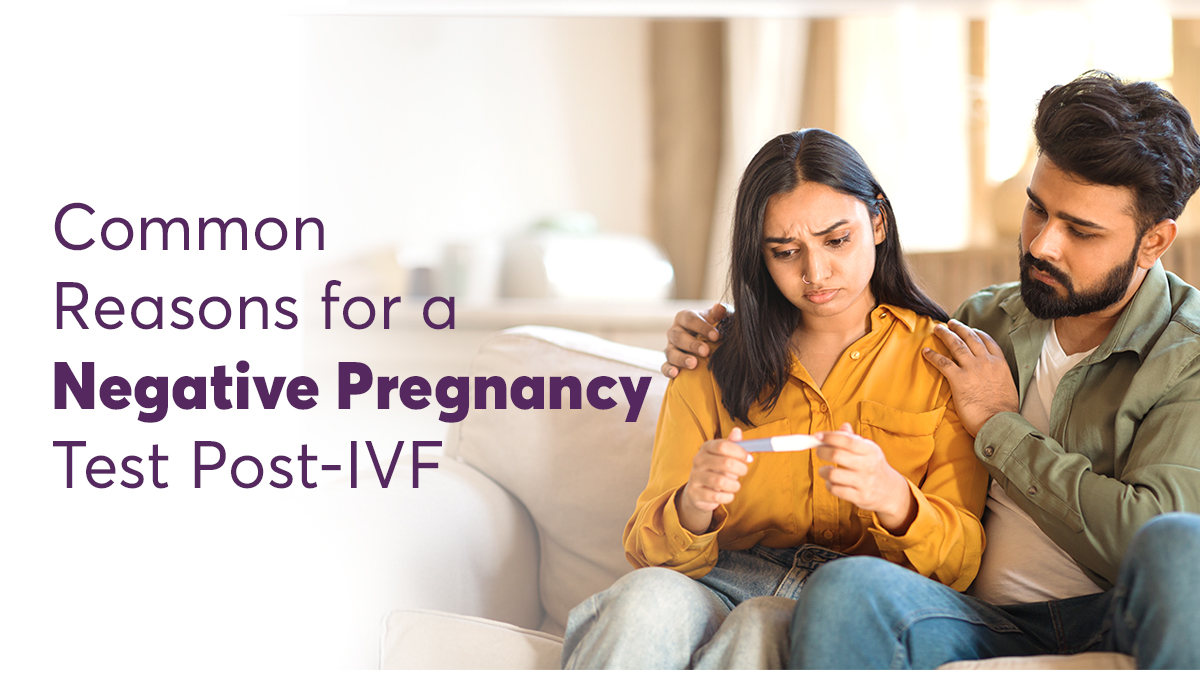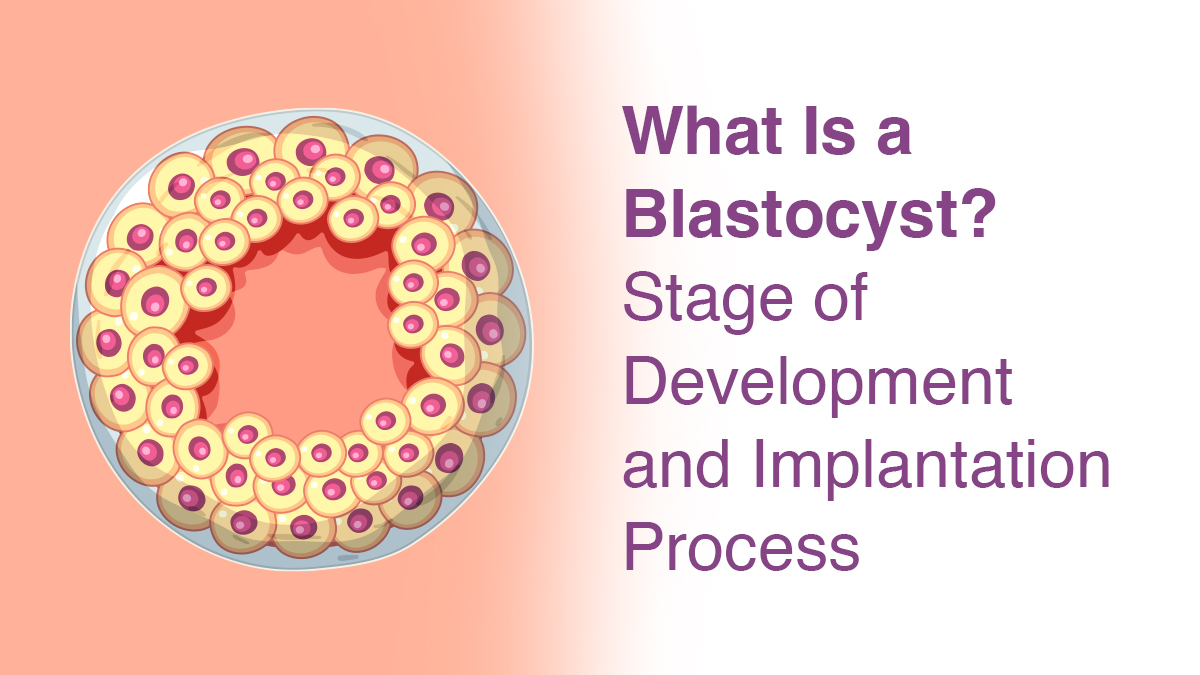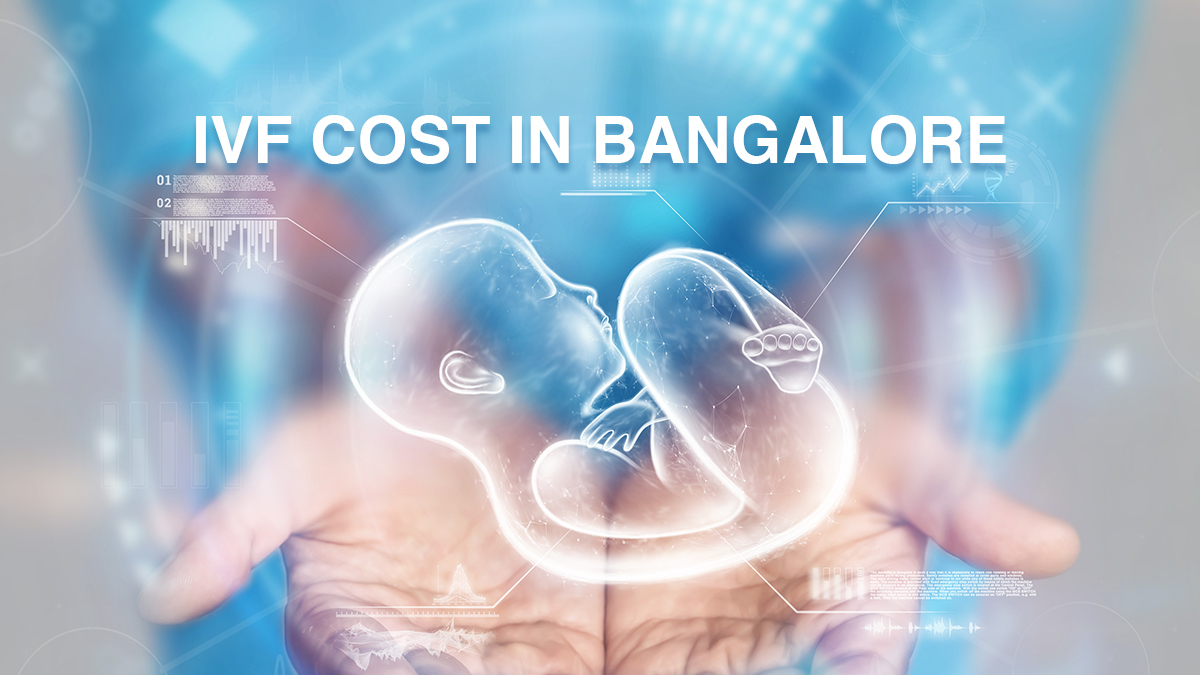
Common Reasons for a Negative Pregnancy Test Post-IVF

It can be heartbreaking for couples to receive a negative pregnancy test after IVF. However, it is important to keep a calm mind and understand the reasons behind this negative result. This helps to manage your expectations and you can plan your next steps with ease. To help you on this journey, we have put together a list of multiple factors which can be responsible for a negative result on the pregnancy test. Read on this blog to know more.
Reasons for a Negative Pregnancy Test Post-IVF Process
A negative test doesn’t always reflect a single issue; instead, multiple clinical and biological elements can affect implantation and early pregnancy. Let’s understand it in detail:
Timing of Test
The accuracy of your pregnancy result depends greatly on when the test is taken, as testing too early can give an incorrect picture.
Testing Too Early
One of the reasons you may end up with a negative pregnancy test after IVF is because the test might have been done too early. Pregnancy tests are designed to detect human chorionic gonadotropin (hCG) levels in the body, which can only be found if a woman is pregnant. The hormone is only produced when the fertilized egg successfully attaches itself to the uterine lining and starts to grow. These levels do not rise in the early days post the IVF treatment.
Timing Guidelines
Typically, it is recommended that couples should wait at least 10-14 days following embryo transfer before taking any pregnancy test. This duration allows hCG levels enough time to become detectable. Testing before this period might result in a false negative result.
Quality of Embryo
The health and development potential of the embryo are key to successful implantation, making embryo quality an important factor to consider.
Embryo Growth
In IVF, the quality of embryos is incredibly crucial for implantation and pregnancy success. Embryos of high quality are more likely to grow and attach to the uterine lining.
Genetic Factors
Genetic abnormalities in embryos can deeply influence the success of the embryo implantation. Even if the embryos appear healthy, the underlying genetic issues might affect their development. As a result, the pregnancy test might show a negative result.
Evaluating Embryos
The grading of embryos depends on their development and appearance under a microscope. The grading assessment helps in predicting the chances of successful implantation. However, there is always a possibility that even well-graded embryos might fail to implant due to various reasons.
Uterine Factors
For an embryo to implant, the uterus must be supportive and receptive, and even small issues in this environment can affect the outcome.
Endometrial Receptivity
A key factor to a successful embryo implantation is a receptive endometrium (the lining of the uterus). The lining, in effect, needs to be of the right thickness and should be at the correct developmental stage. This allows the embryo to attach and grow.
Uterine Conditions
Conditions like fibroids, polyps, or scar tissue in the womb can block the implantation of the embryos. This can lead to a failed pregnancy test.
Endometrial Thickness
The right thickness of the endometrium is vital for impregnation. An endometrium that’s either too thin or too thick might not offer the perfect environment for an embryo implantation.
Hormonal Factors
Hormones guide every step of the IVF process, and any imbalance can influence implantation or early pregnancy development.
Hormonal Imbalances
Progesterone and estrogen are vital hormones needed for early pregnancy. Imbalanced hormones can disrupt the process of embryo implantation. This can lead to a negative pregnancy test result.
Luteal Phase Support
Adequate luteal phase support is crucial after embryo transfer. Insufficient support can lead to a failure in maintaining the uterine lining, which is necessary for the embryo to implant and grow. This deficiency can cause a real negative pregnancy test post-IVF.
Lifestyle and Health Factors
Daily habits and underlying health conditions play a subtle yet meaningful role in determining how well the body supports early pregnancy.
Living Habits
Puffing cigarettes, drinking alcohol, and overusing caffeine might lower the chances of IVF working. Such personal habits could lower the health of eggs and sperm. They might also weaken the environment for embryo development.
Tension and Mind Wellness
Extreme tension and poor mental health might affect fertility and IVF process outcomes. Stress is believed to alter hormone levels and the uterus’s ability to receive, causing a pregnancy test to be negative.
General Health
Basic health problems such as being overweight, thyroid issues or immune system disorders can impact IVF outcomes. These issues could disrupt hormonal levels, impact egg health, and hinder the body’s capacity to nurture an early pregnancy.
Embryo Transfer Technique
The precision and approach used during embryo transfer can impact how comfortably and effectively the embryo settles into the uterus.
Precision of the Procedure
The skill and technique used by the expert in conducting the embryo transfer is crucial. Being accurate throughout the process guarantees that the embryo is positioned in the most optimal location within the uterus.
Complications During Transfer
Complications such as uterine contractions or technical difficulties during the transfer can affect the embryo’s ability to implant, resulting in a negative pregnancy test.
Immune Factors
Immune System Response
At times, the body’s natural defence system, the immune system, might wrongly treat the embryo as an intruder. This mistaken response could hinder the embryo implantation. As a result, the pregnancy test could show negative.
Autoimmune Diseases
Sometimes, the body’s immune system wrongly targets its own cells. This situation can make IVF treatments less successful.
Conclusion
Getting a negative pregnancy result after IVF process can be very disheartening. By looking into the factors mentioned above and finding the right help, people can increase their chances of a positive result in their journey to have a baby.


fill up the form to get a
Free Consultation
Avail 0% interest on EMI
All Procedures | No Upper Limit
Frequently Asked Questions
Can you get a false negative on a pregnancy test post IVF process?
Why am I not getting pregnant after IVF?
When should I take a pregnancy test after IVF?
How reliable are urine pregnancy tests after IVF?
How we reviewed this article:
- Current Version
- January 23, 2025 by Oasis Fertility
- August 1, 2024 by Oasis Fertility
- June 20, 2024 by Oasis Fertility
- June 19, 2024 by Oasis Fertility






